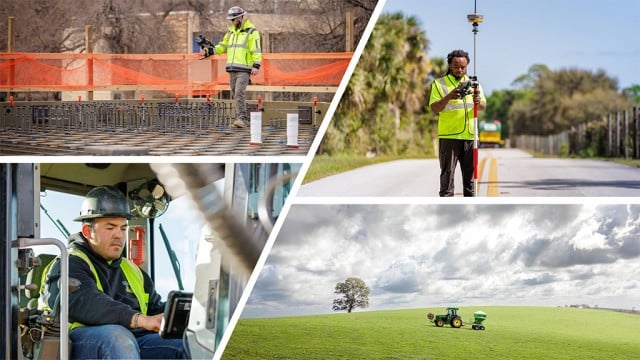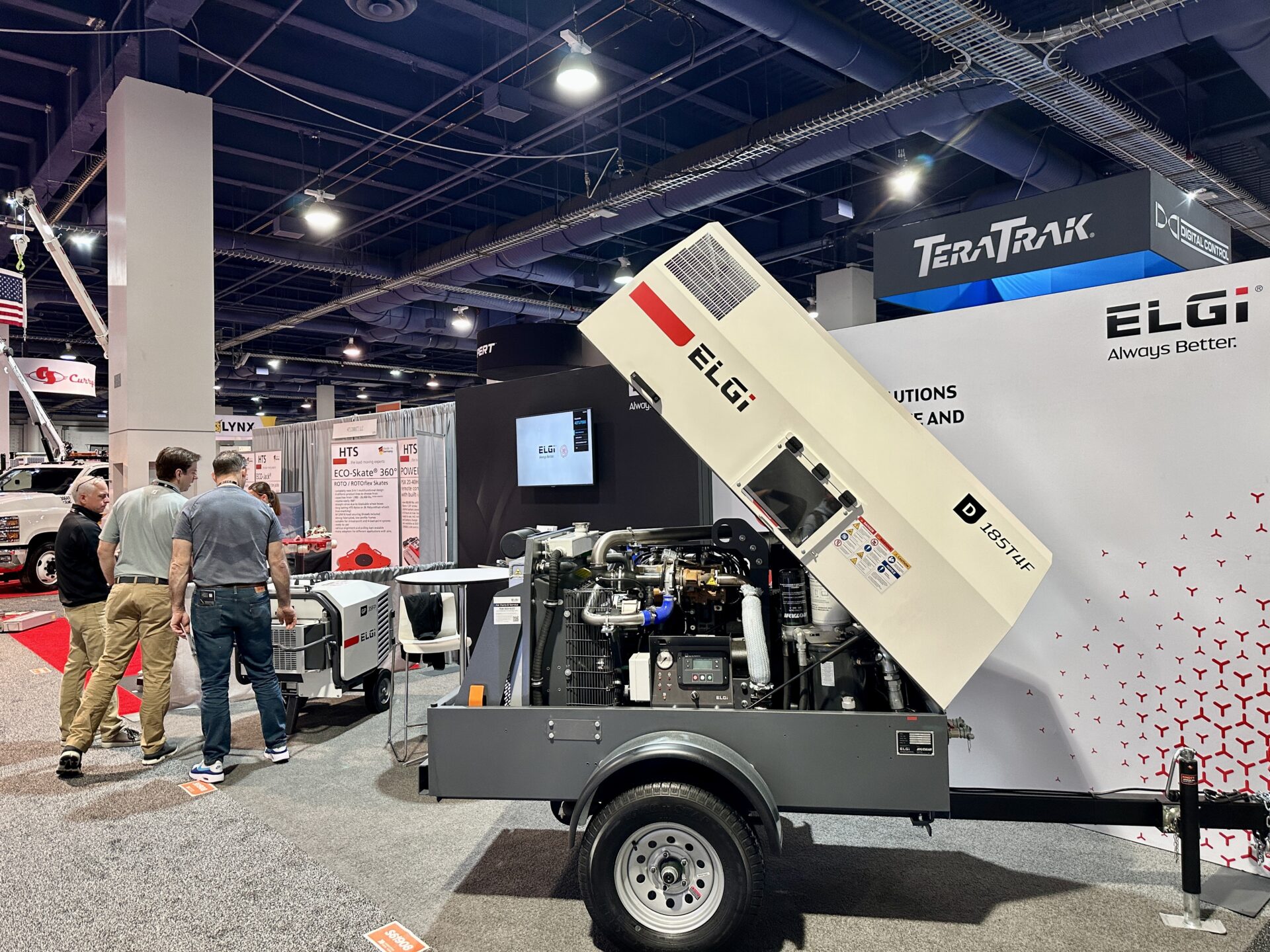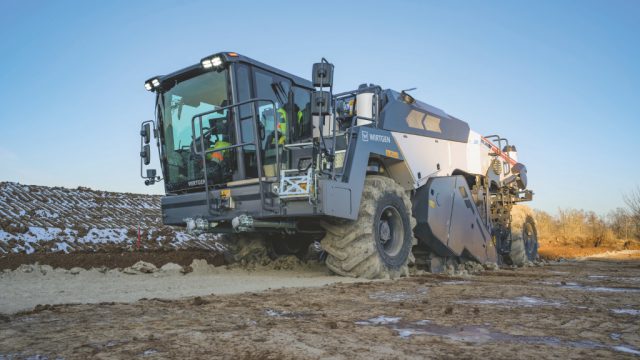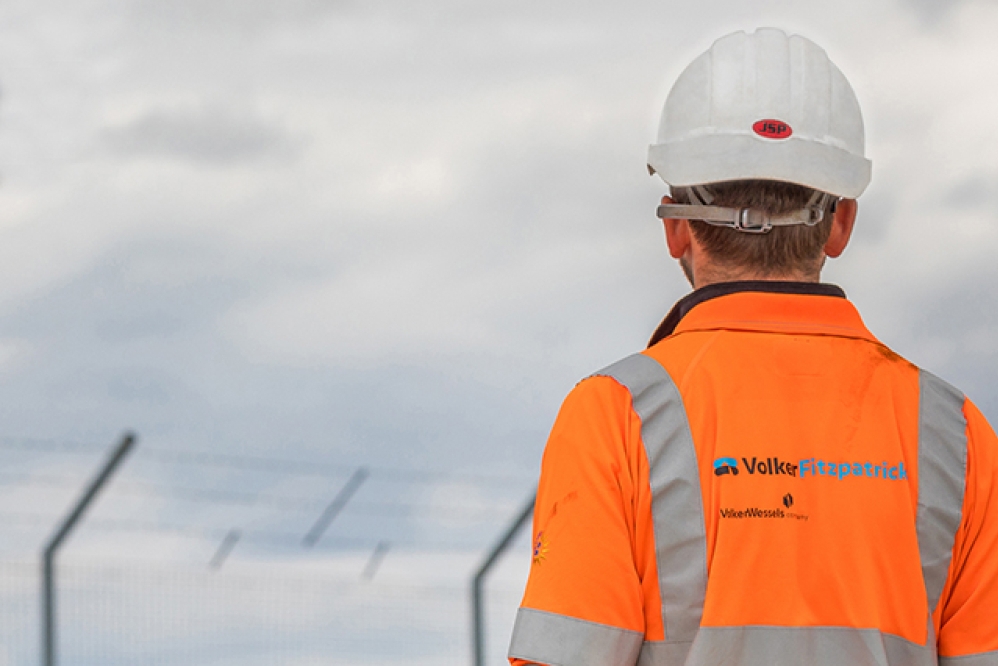Sweden's largest fossil-free worksite advances to 50% electric operation with Volvo Construction Equipment
Stockholm’s fossil-free construction site now aims for 50% electric machine operation, up from 10% two years ago. www.volvoce.com Just two years ago, a 10% electric machine operation was an ambitious target for Stockholm’s pioneering fossil-free construction site. Today, that goal has risen to 50% incorporating even more electric machines from Volvo Construction Equipment (Volvo CE), after a successful first phase that not only proved its feasibility but also delivered numerous additional benefits. The redevelopment of the ‘Slakthusområdet’ or meat-packing area in central Stockholm is capturing attention for its commitment to sustainability and innovation. The project is a testbed for more sustainable construction and demonstrates the enormous and often untapped potential of fossil-free procurement contracts as a driver for change. In the first phase – set to conclude in early 2025 – the project has achieved CO₂ savings of 2,759 tons as of June 2024, a feat that earned it the ‘Sustainable Construction Project of the Year’ award at the annual Swedish Green Building Awards. Looking ahead to the second phase, the climate ambitions are even more progressive – a challenge that Volvo CE, Skanska and Swecon are fully prepared to deliver. Carbon calculations: A game changer Stockholm City aims to be climate positive by 2030 and fossil-fuel free by 2040. Fossil-free requirements in contracts play a crucial role in reaching these targets. In a groundbreaking move, for the second phase of the project Stockholm City set carbon calculations at the tender stage, including practical implementation details. This sets a new standard for sustainable accountability in construction. Skanska secured the contract by demonstrating proven sustainability results, the capability to deliver the plan, and presenting a proposal that aligned with Stockholm’s ambitious goals. In this new phase of the project, the aim is to reduce emissions even further by going under the target of 3.5 tons of CO₂ per SEK 1 million turnover. This is a dramatic decrease on the 11 to 29 tons typically emitted in similar projects. The increase in electric operation also reflects rapid advancements in electric machine technologies. Anders Österberg, Deputy Mayor of Stockholm and chair of the City Development Committee, says: “In the City of Stockholm, we recognize the vital role we must play in accelerating the transition to fossil-free construction sites. The City of Stockholm has a goal of becoming climate positive by 2030. To reach this goal we need to continue to require the use of electrically powered construction vehicles and fossil-free construction sites in our procurement.” The ambitious sustainability targets for Phase Two include: 100% fossil-fuel free site operations through the use of HVO100 fuel and increasing electric operation from 10% to 50% The use of climate-reduced concrete Delivering on the carbon calculation Three electric machines from Volvo CE, including two Volvo EC230 Electric crawler excavators and one L120H Electric Conversion wheel loader are working to lower the ground, excavate approximately 68,000m³ of soil and rock, fill in a work tunnel, and prepare the area for utility systems. Fredrik Tjernström, Head of Electromobility Solutions Sales at Volvo CE, said: “The first phase showed the effectiveness of electric machines in performing tasks while significantly reducing CO₂ emissions. This is invaluable for city center projects to help municipalities meet their emission reduction targets and enhance air quality, as well as reducing noise levels for everyone’s benefit.” Anna Göransdotter, Project Manager at Skanska, added: “When municipalities like Stockholm City prioritize carbon reduction in contract awards, it not only sets an inspiring precedent for other regions, but also drives innovation across the construction industry. This proactive approach creates a ripple effect throughout the entire value chain, pushing all stakeholders to explore new possibilities and expand the boundaries of what can be achieved in sustainable construction.” At the Swedish Green Building Awards on November 28, the Slakthusområdet project was named Sustainable Construction Project of the Year. From left to right: Linda Cronstedt, Elin Coleman, Lisa Kroon, Lisa Wohlfart, and Ida Bergman, of Skanska. Electric construction equipment The machines - affectionately nicknamed Electra, Ellen and Elton by the team - are joined by two electric trucks with trailers, including a Volvo electric truck provided by Bellman Group which is set to arrive in early 2025, an electric powered sorting tool, electric compaction tool and hand-operated electric machines. Charging infrastructure is supplied by Eviny, featuring two fast chargers and three battery packs. The project commenced in the summer of 2024 and is scheduled for completion in 2025. www.volvoce.com Powered by Induportals Media Publishing

Stockholm’s fossil-free construction site now aims for 50% electric machine operation, up from 10% two years ago.
www.volvoce.com

Just two years ago, a 10% electric machine operation was an ambitious target for Stockholm’s pioneering fossil-free construction site. Today, that goal has risen to 50% incorporating even more electric machines from Volvo Construction Equipment (Volvo CE), after a successful first phase that not only proved its feasibility but also delivered numerous additional benefits.
The redevelopment of the ‘Slakthusområdet’ or meat-packing area in central Stockholm is capturing attention for its commitment to sustainability and innovation. The project is a testbed for more sustainable construction and demonstrates the enormous and often untapped potential of fossil-free procurement contracts as a driver for change. In the first phase – set to conclude in early 2025 – the project has achieved CO₂ savings of 2,759 tons as of June 2024, a feat that earned it the ‘Sustainable Construction Project of the Year’ award at the annual Swedish Green Building Awards. Looking ahead to the second phase, the climate ambitions are even more progressive – a challenge that Volvo CE, Skanska and Swecon are fully prepared to deliver.
Carbon calculations: A game changer
Stockholm City aims to be climate positive by 2030 and fossil-fuel free by 2040. Fossil-free requirements in contracts play a crucial role in reaching these targets. In a groundbreaking move, for the second phase of the project Stockholm City set carbon calculations at the tender stage, including practical implementation details. This sets a new standard for sustainable accountability in construction. Skanska secured the contract by demonstrating proven sustainability results, the capability to deliver the plan, and presenting a proposal that aligned with Stockholm’s ambitious goals.
In this new phase of the project, the aim is to reduce emissions even further by going under the target of 3.5 tons of CO₂ per SEK 1 million turnover. This is a dramatic decrease on the 11 to 29 tons typically emitted in similar projects. The increase in electric operation also reflects rapid advancements in electric machine technologies.
Anders Österberg, Deputy Mayor of Stockholm and chair of the City Development Committee, says: “In the City of Stockholm, we recognize the vital role we must play in accelerating the transition to fossil-free construction sites. The City of Stockholm has a goal of becoming climate positive by 2030. To reach this goal we need to continue to require the use of electrically powered construction vehicles and fossil-free construction sites in our procurement.”
The ambitious sustainability targets for Phase Two include:
- 100% fossil-fuel free site operations through the use of HVO100 fuel and increasing electric operation from 10% to 50%
- The use of climate-reduced concrete
- Delivering on the carbon calculation
Three electric machines from Volvo CE, including two Volvo EC230 Electric crawler excavators and one L120H Electric Conversion wheel loader are working to lower the ground, excavate approximately 68,000m³ of soil and rock, fill in a work tunnel, and prepare the area for utility systems.
Fredrik Tjernström, Head of Electromobility Solutions Sales at Volvo CE, said: “The first phase showed the effectiveness of electric machines in performing tasks while significantly reducing CO₂ emissions. This is invaluable for city center projects to help municipalities meet their emission reduction targets and enhance air quality, as well as reducing noise levels for everyone’s benefit.”
Anna Göransdotter, Project Manager at Skanska, added: “When municipalities like Stockholm City prioritize carbon reduction in contract awards, it not only sets an inspiring precedent for other regions, but also drives innovation across the construction industry. This proactive approach creates a ripple effect throughout the entire value chain, pushing all stakeholders to explore new possibilities and expand the boundaries of what can be achieved in sustainable construction.”

At the Swedish Green Building Awards on November 28, the Slakthusområdet project was named Sustainable Construction Project of the Year. From left to right: Linda Cronstedt, Elin Coleman, Lisa Kroon, Lisa Wohlfart, and Ida Bergman, of Skanska.
Electric construction equipment
The machines - affectionately nicknamed Electra, Ellen and Elton by the team - are joined by two electric trucks with trailers, including a Volvo electric truck provided by Bellman Group which is set to arrive in early 2025, an electric powered sorting tool, electric compaction tool and hand-operated electric machines. Charging infrastructure is supplied by Eviny, featuring two fast chargers and three battery packs.
The project commenced in the summer of 2024 and is scheduled for completion in 2025.
www.volvoce.com
Powered by
Induportals Media Publishing

 machineryasia
machineryasia 








